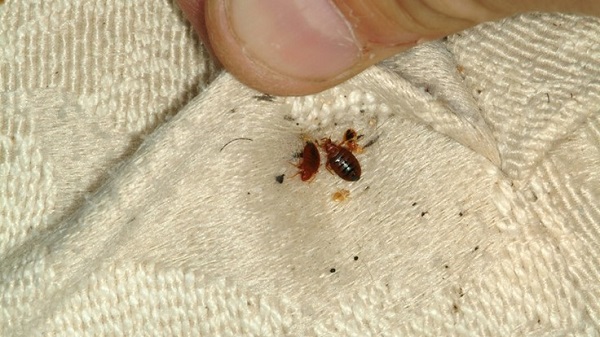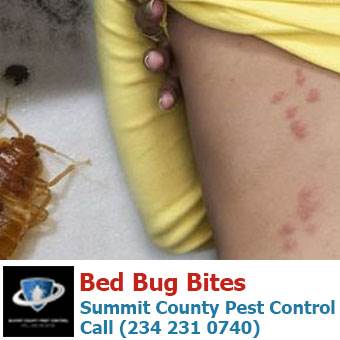Efficient Bug Control Measures to Shield Your Yard and Plants
In the world of gardening, the harmony of a well-tended yard can typically be interrupted by unwanted pests that threaten the health and wellness and vitality of plants. As gardeners make every effort to preserve a prospering exterior room, the obstacle of insect control emerges as an important facet of their gardening ventures. Implementing efficient pest control determines not just safeguards the garden's aesthetic allure yet likewise plays a critical function in preserving the plants' well-being. By exploring a series of strategies that incorporate all-natural repellents, helpful bugs, friend planting, DIY services, and environmentally-friendly chemicals, gardeners can browse the complex world of pest monitoring with precision and treatment.
All-natural Insect Repellents

One more efficient all-natural parasite repellent is diatomaceous planet, a powdery substance made from fossilized aquatic microorganisms. Diatomaceous planet jobs by literally hurting insects with its abrasive texture, making it an exceptional choice for regulating parasites like slugs, beetles, and caterpillars. In addition, planting companion plants like marigolds, lavender, or basil can aid fend off insects due to their solid fragrances or natural chemical compounds.
Beneficial Insects for Parasite Control

An additional helpful insect is the parasitical wasp, which lays its eggs inside bug insects, ultimately eliminating them. Ground beetles are outstanding for regulating caterpillars, snails, and slugs. Hoverflies, typically mistaken for as a result of their comparable appearance, eat aphids, thrips, and caterpillars.
To bring in helpful insects to your garden, you can grow a varied series of flowering plants, such as dill, fennel, and yarrow, which give nectar and pollen for adult pests. In addition, avoid making use of broad-spectrum pesticides that can hurt both dangerous and useful insects. By creating a welcoming atmosphere for these advantageous bugs, you can lower the demand for chemical pesticides and advertise a healthier, a lot more well balanced yard ecosystem.
Companion Planting Methods
When intending to boost the performance of advantageous bugs find here in your garden for all-natural bug control, considering companion planting techniques can even more optimize the ecological community balance. Friend planting involves purposefully putting certain plants next to each other to maximize their mutual benefits, such as hindering pests, attracting valuable bugs, or improving nutrition uptake - bed bug exterminator houston near me. One prominent example is planting marigolds alongside tomatoes to push back nematodes and various other unsafe pests while likewise drawing in pollinators
Additionally, including aromatic herbs like basil, mint, or rosemary in between veggie rows can assist prevent bugs with their solid fragrances. One more effective approach is growing flowers such as sunflowers, zinnias, or cosmos to bring in pollinators like and butterflies, which in turn can aid in cross-pollinating your his explanation vegetables and fruit plants. Moreover, planting catch plants like nasturtiums can divert parasites away from your main plants, functioning as sacrificial plants that safeguard your valuable fruit and vegetables. By carrying out companion planting approaches, you can produce a diverse and unified yard ecosystem that normally controls insects while advertising plant wellness and productivity.
DIY Bug Control Solutions
To efficiently handle bugs in your yard, applying do-it-yourself bug control remedies can be an affordable and ecologically friendly method - bed bug exterminator houston near me. Establishing up physical obstacles like row covers or netting can additionally protect against pests like caterpillars from harming your plants.
Buddy growing specific natural herbs and flowers like marigolds, basil, and lavender can help ward off pests and bring in useful insects. By integrating these Do it yourself bug control services right into your gardening regimen, you can protect your yard and plants without relying on rough chemicals.
Environmentally-Friendly Pesticides

One more reliable option is diatomaceous earth, an all-natural substance made from fossilized aquatic microorganisms, which can be sprinkled around plants to manage slugs, snails, and various other crawling insects. In addition, insecticidal soaps and oils acquired from plant-based resources serve for managing soft-bodied bugs like aphids, mites, and whiteflies.
Verdict
To conclude, efficient pest control actions such as my link natural repellents, helpful bugs, friend planting techniques, DIY remedies, and environmentally-friendly pesticides are essential for protecting your yard and plants. By carrying out these methods, you can prevent damages triggered by parasites and preserve a healthy and balanced and flourishing garden ecological community. It is necessary to think about the long-term effect of making use of chemicals and select more lasting and eco-friendly choices to make certain the health and wellness and health of your plants and the environment.